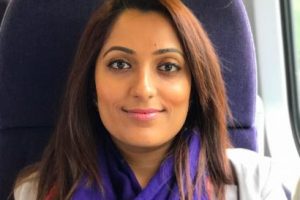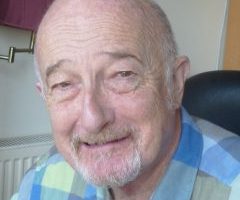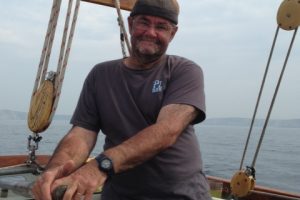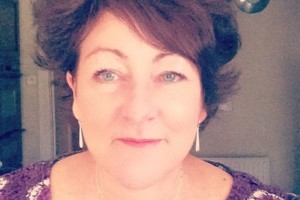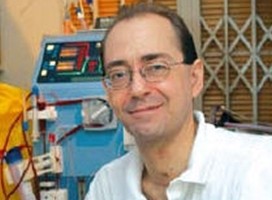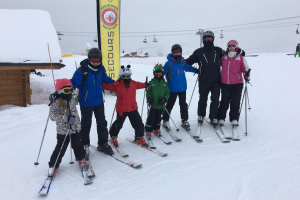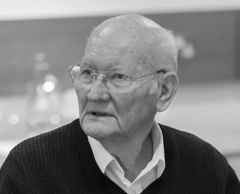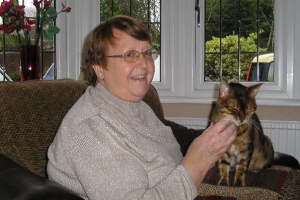Personal stories
Geoff’s Story – Learning, sharing and helping others – it’s all about activation

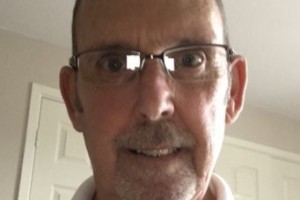
Dialysing for a long period of time has given Geoff great insight into how to really live with kidney disease, as opposed to just surviving. Geoff describes himself as a “massive believer in self-management”. To this end Geoff is now working part time in his local unit in Nottingham in a new role as Patient Liaison Officer. He is proud of the fact that he is the only person employed to do this in the country at the moment, and he fully understands the need for the buddying system he is developing for people new to dialysis. Geoff is responsible for training the ‘buddies’ who are all volunteers and who are, by and large, very activated people, managing their kidney condition themselves. Geoff is also getting used to being involved in nurse training, because as he says, it’s not until you hear from a patient how it really feels and changes your life that you can start to understand their perspective about what is happening to them. Geoff starts the difficult conversations for many, and it’s clearly valued and appreciated.
It hasn’t all been plain sailing for Geoff. When he was in his twenties and first needed dialysis he was taken to the unit with no explanation about what was about to happen. He saw people attached to machines, and now realises they were asleep, but at the time he thought they were unconscious and so he said no, and turned around and went home. Dialysis was not for him. Geoff was telephoned by an understanding nurse who talked him through what would happen – he went back that afternoon. He believes that if someone had spent time with him, explained what would happen at the outset and that he could learn to manage his dialysis, then his experience would have been very different.
About self-management and activation Geoff feels very strongly; “I was determined to put my own needles in 30 years ago and I wanted to learn everything I could about what was happening to me. But I realise not everyone is the same as me. I see people coming out from their appointment with their consultant with no more idea of what’s going to happen than when they went in. And that’s not to blame the consultant but sometimes people are in such a state, they really can’t take anything in. They have to go away and process what they’ve been told, and it’s after that point when they have the questions they need answering and want to know more. But of course not everyone wants to know. Some people prefer to remain in blissful ignorance and leave all the responsibility with the care team, and I can understand that – especially the older people who find it very difficult. It can take a long time for some people to come to terms with what is happening to them but when I went back on to dialysis after my transplant failed after 19 years I just thought, I want to be the best I can be and that’s what I try to encourage others to do”.
It was a tough time for Geoff but he says “No way would I have given up. I was gutted and very down but I went back on dialysis and I realised how much the machines had advanced. I had no time to feel sorry for myself and I knew I had to help myself as much as possible”.
Another blow came when Geoff lost his job because he couldn’t fit dialysis around it. But as he started to feel physically better he developed a plan for his future. When he realised he could no longer do some things, he just decided he wouldn’t think about those things, but would focus on what he could do. Geoff’s plan included getting fit and getting a part time job. Working with the renal psychologist he wrote about his experiences, how he was feeling, and started voluntary work on the unit for the SYD (Sharing Your Dialysis) project – an initiative to help people take control of their dialysis to whatever degree they feel comfortable. Geoff also began speaking to nurses on their training days about his life. His talks were based on the patient’s perspective and how positive the effect of taking some control back by self-managing can be for people. The talks were very successful and well-received and as a consequence expanded to include more sessions whose audiences included the renal doctors and nutritionists.
Geoff feels that through his work he is giving something back. He says often it’s like talking to your best friend. “It’s very easy to go home, stop doing things and disappear into your shell when you first learn you have kidney disease. It can be very gradual and sometimes it happens without you realising it. I love what I do and everyone in the team has been very supportive – I really feel like one of the team. I want all kidney patients to know that there is life after dialysis and looking after yourself is really important. One of the best ways to do that it to get all the information you need by talking to people. It’s good to ask for help and support, and it’s usually there when you need it. The team don’t know what you don’t know unless you ask the questions. If you don’t understand then you need to ask again. It’s what the team is there for and it’s important you know what’s happening to your body.
“I’m probably not your average kidney patient – winning medals for badminton and volleyball at the British Transplant Games – travelling to Sydney and Budapest for the World Transplant Games where I won silver and bronze medals for volleyball. I travelled a lot during this time enjoying some great holidays in the Caribbean, which I couldn’t have done without my transplant. But I also experienced the lows and I understand what many people can go through. I remain as determined as ever that, although my life is definitely different to how it might have been, I owe it to myself to live the best life I can. My aim is to help as many people as possible to do the same. Dialysis doesn’t define me – I define it!
Personal stories



